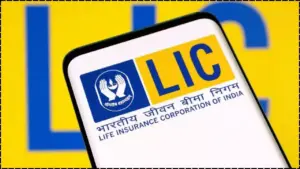Over-50s are being caught out by a simple but costly mistake: failing to keep DVLA records and medical disclosures up to date, which can lead to fines of up to £1,000 and even prosecution if an incident occurs while unreported issues affect driving fitness. The core problem isn’t new rules it’s missing the long‑standing duty to tell DVLA about relevant medical conditions and to keep licence details, including your address, current. Older drivers are more likely to experience health and life changes in their 50s and beyond, which is why they’re more exposed.

Here’s the focus: over-50s must promptly notify DVLA if a medical condition affects safe driving and ensures licence and vehicle records are accurate or risk a £1,000 fine and possible legal consequences after a collision. This legal duty applies to everyone, but older motorists feature more often in warnings because health updates and address moves become more common and ignoring them can cause insurance and legal headaches.
Table of Contents
Over-50s Facing £1000 Fines
| Item | What it means | Who it affects | Penalty/Risk |
|---|---|---|---|
| Notify medical conditions | Tell DVLA if a condition or disability impacts fitness to drive | All drivers | Up to £1,000 fine; possible prosecution after a crash |
| Keep address current | Update licence and V5C when you move | All drivers | Risk of fines and missed legal notices |
| Older driver attention | More health and admin changes in 50s+ | Over-50s | Higher likelihood of missed updates |
| Fitness standards | Vision/medical standards must be met to drive legally | All drivers | Investigation, restrictions, or revocation if unfit |
| Media warnings | Alerts urge drivers to act to avoid fines | All drivers | Highlights overlooked obligations |
Why this DVLA Rule Trips up Over-50s
Health changes become more common with age and can alter driving fitness, triggering a duty to notify DVLA without delay. Address moves for downsizing or lifestyle changes are frequent and, if you forget to update your licence and V5C, you can miss critical letters that escalate simple admin into fines. There’s also a common misconception that only convictions matter—your duty to self-report medical changes applies regardless of accidents or police contact.
The £1,000 Fine: When it Applies
Failing to tell DVLA about a medical condition that affects driving can result in a fine of up to £1,000, with tougher consequences if you’re involved in an incident while unfit to drive due to a non-disclosed condition. Not updating your address on your driving licence and vehicle documents can expose you to the same £1,000 penalty. These are long-standing requirements, not brand-new penalties.
What Counts as a “Notifiable” Condition
If a condition impacts safe driving, it’s likely notifiable. That includes visual impairments (like reduced acuity or field of vision), neurological issues, certain heart conditions, blackouts, seizures, and any health change that affects control, reaction times, or awareness. You don’t need to guess use DVLA’s A–Z guidance and follow the condition-specific steps. Be proactive rather than waiting for roadside stops or incidents.
Address Updates: The Quiet Compliance Killer
Thousands of driver’s risk fines simply because they moved and forgot to tell DVLA. The fix is quick: update both the driving licence and the vehicle’s V5C logbook. Outdated addresses also mean you might miss reminders or legal notices, turning easy admin into enforcement problems.
No, this isn’t about inventing new penalties
News headlines urging drivers to “act now” are highlighting enforcement of long-standing obligations, especially around safety and accurate records. The £1,000 figure appears because that’s the statutory ceiling for these failures, and it becomes very real when collisions, roadside checks, or insurance reviews uncover undisclosed medical issues or outdated records.
Practical Steps to Stay Compliant Today
- Report medical changes: Disclose any condition that affects driving via the official DVLA process for your diagnosis.
- Update your address: Change your driving licence and V5C details as soon as you move; update both in one sitting.
- Keep evidence: If a clinician advises a condition affects driving, act immediately and keep documentation for any DVLA follow-up.
- Don’t drive if told not to: If advised to stop while DVLA assesses your case, wait for the decision and follow any licence conditions.
Over-50s DVLA Rule and Insurance Implications
The fine is only part of the risk. After a crash, undisclosed medical conditions or outdated records can jeopardize your claim and invite legal scrutiny. The best protection is proactive compliance notify DVLA, keep your details current, and avoid any suggestion that information affecting safety was withheld.
How to Disclose a Condition to DVLA
Find your condition in DVLA’s medical guidance and complete the relevant form or online steps. You may be asked for details from your GP or specialist. If instructed to stop driving during assessment, do not drive until DVLA clears you. Following the process promptly keeps you compliant and protects your licence.
What Older Drivers Should do This Week
- Book an eye test if overdue and confirm you meet driving standards; if not, stop driving and begin the DVLA notification.
- If you’ve moved in the last year, update both your licence and V5C.
- If you manage a long-term condition, confirm whether DVLA requires notification and ensure your medical records align with what might be requested.
Step-by-Step: Renewing at 70
At 70, renew your licence every three years. The process is free online, and you’ll self-declare fitness to drive. DVLA generally sends reminders but set your own calendar alert 90 days before expiry. If you have entitlements like C1 or D1, follow the specific renewal route as required.
Common Misconceptions and Clarifications
- There is no automatic medical test for every older driver at renewal; it remains a self-declaration system unless a relevant condition is reported.
- The £1,000 figure isn’t a blanket renewal penalty; it applies to failures like nondisclosure of relevant medical issues or not keeping details up to date.
- Administrative oversights can snowball. A missed letter due to an old address can quickly turn into a fine or investigation.
The Action Plan for Over-50s
- Review your health status against DVLA’s notifiable list and disclose immediately where required.
- Align your licence, V5C, and insurance address details.
- Keep proof of disclosures and medical advice.
- Set renewal reminders well ahead of 70 and every three years thereafter.
- Treat the £1,000 risk as a prompt to stay on top of simple tasks that protect your licence and insurance.
This is all avoidable: disclose relevant medical changes, keep your address current, meet eyesight standards, and renew on time at 70 and every three years after. Do those basics and you’ll sidestep the £1,000 fine and the far bigger risks that come with noncompliance.
Winter Fuel Payment Recall: DWP’s Unexpected Move Could Cost Pensioners Big
FAQs on Over-50s Facing £1000 Fines
Is this really about over-50s only?
No. The rules apply to everyone. Over-50s are highlighted because they experience more frequent health and address changes, which increases the chance of missing updates.
What conditions need reporting to DVLA?
Any condition that affects safe driving vision issues, some neurological or cardiac conditions, blackouts, and similar changes. Check your diagnosis against DVLA’s condition list and follow the specified process.
Can I be fined £1,000 for not updating my address?
Yes. Failing to update your driving licence and V5C after moving can lead to a £1,000 fine, and missed letters can turn simple fixes into enforcement problems.
How fast should I report a medical change?
Promptly. As soon as you’re told a condition affects driving fitness, start the DVLA process. If advised to stop driving during assessment, follow that instruction.
Does DVLA contact my doctor?
It can, depending on the condition. Having up-to-date medical information ready helps the process move faster and supports an accurate licensing decision.
















